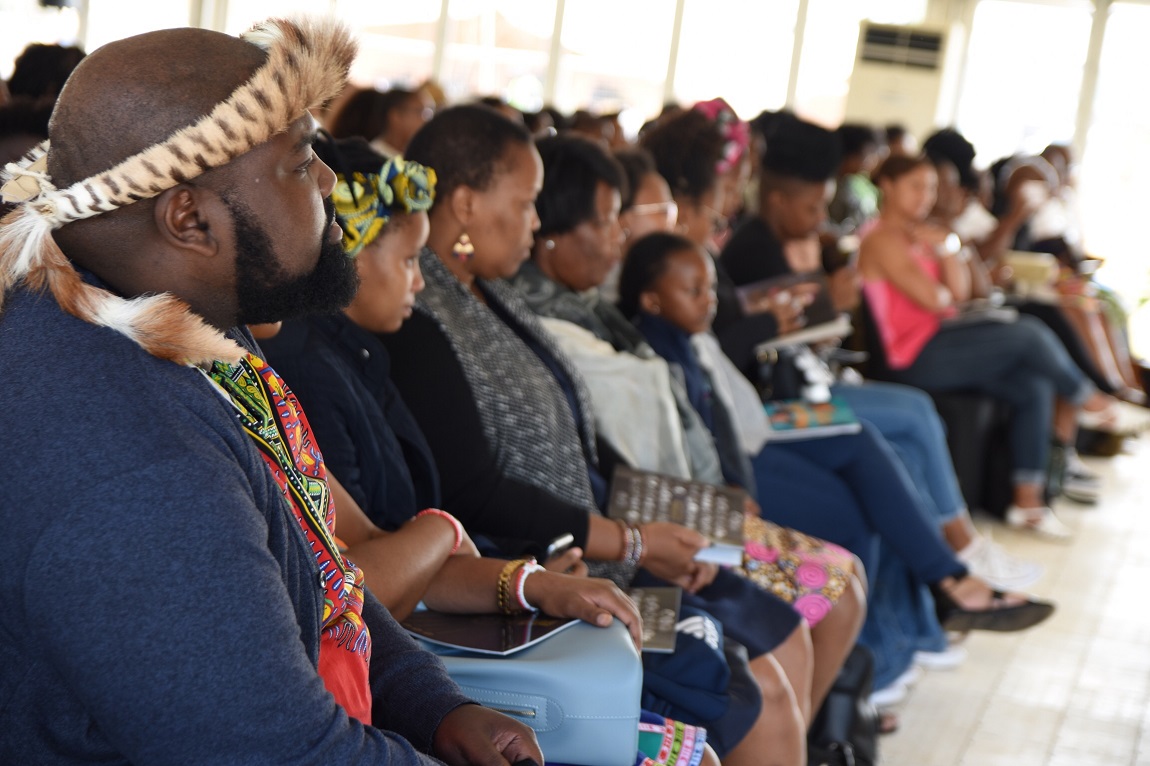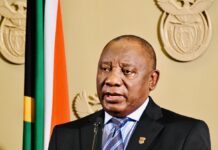The Abantu Book Festival took place for the third year in a row this past weekend, and more people than ever attended. The festival is a feat for South Africa’s literary sphere, as the first annual event celebrating Black writers, writing and publications. It is a long-overdue space to engage with existing and emerging African literature in South Africa, and has only gotten bigger and more popular since its first year, however, something is different this year. Whereas over the past two years, attendance by white readers and writers was not an explicit issue, in 2018 organisers and attendees alike made demands that that white people not attend the festival.
Since the death of Rainbow Nationalism, progressive political spaces have taken a stance against white participation, a stance strongly associated with populist identity politics, which denounce white involvement in Black radical movements. These kinds of politics are touted by the Economic Freedom Fighters and Black First Land First public personalities such as Andile Mngxitama. This ideology is not limited to the organisers of the Abantu Festival, and occurred frequently during Fees Must Fall, and are seen gaining popularity in the greater South African political scene.
While it has become more popular in university circles, festivals, and organisations, excluding white people is a useless political move most of the time, as it mostly occurs as a form of self-aggrandising “fake wokeness” with no desire to change society. Still, exceptions to this do exist, such as UCT’s Black-only dinner meeting. The difference is that a dinner, an event which was described as a safe space for Black emotive expressions, as part of an explicitly political Decolonial Winter School, has a different objective to the book festival.
A POC Supper At UCT’s Decolonial School Is Causing White Tears
In the case of Abantu, which many see as a social event and educational exploration of Black literature and discussions, excluding white people who read books by African authors and want to listen to these discussions seems counter intuitive. It’s supposed to be a celebratory arena for African literature, a place of a new imaginative, inclusive, pro-black, pro-poor politics. The festival has substance. It’s not meant to be over inflated, empty populist rhetoric. Reading is one of the strongest methods to educate people into politics of democracy and justice, and if anything, white people should be hyper-exposed to Black writers and their work, in the same way that men should read as much work written by women as possible. It just doesn’t seem reasonable to say white people shouldn’t attend.
Hi, it is for Black writers and readers only.
The kids can come.Abantu Book Festival (@Abantu_) December 8, 2018
Politicisation takes place in certain ways, some radical and some reactionary. One way is through transforming society into a world without oppression, which requires genuine struggle and alliances across the board. However, the “woke” politics we are seeing today moves towards creating escapes from the problems rather than eliminating racist structures in society. The creation of spaces where there is no racism is only accessible to elites anyway. Escapes from the problem do not solve the problem.
If Abantu Festival wants to create a safe space for Black writers and readers, it makes no sense that white attendance is denounced while Chimamanda Ngozi Adichie is lauded as the ‘Beyoncé’ of literature, placed on a platform with Pumla Dineo Gqola and fangirled over despite her obviously regressive and dangerous politics.
Good morning to everyone except those who are not coming to Abantu.
Today, the Beyonce of literature at 1.
Dr @feminist_rogue in conversation with #ChimamandaNgoziAdichie .
We know you have kweshins, so, see you there.Day 2 info: https://t.co/aqz6Rz8COX#AbantuBookFest pic.twitter.com/ZkWUJXn1ZR
Abantu Book Festival (@Abantu_) December 7, 2018
Adichie has insulted and relegated the struggles of Transgender women in the feminist and LGBTQ movements, has demeaned the work of feminist and postcolonial academics in reimagining the world’s history, has openly and unapologetically stated her support for Hillary Clinton and Michelle Obama, women directly and indirectly responsible for the destruction of poor colonised women all over the Global South.
.@NgoziChimamanda: I don’t care much for feminist academic texts, I care for the textured lives of feminist characters. Maybe that’s because I’m a storyteller. #AbantuBookFest
The Daily VOX (@thedailyvox) December 7, 2018
Her views are unacceptable, no matter who she is and what she’d written. She is not the Beyonce of literature, she is a dangerous populist figure risking the tenuous gains made by many people in resistance movements over the world through her fame and regard.
She responds that she admires women like Hilary Clinton as a whole, though are things she doesn’t agree with her on, but she would not hold them them accountable for what their husbands did.#ChimamandaNgoziAdichie#AbantuBookFest
Abantu Book Festival (@Abantu_) December 7, 2018
And yet she was not excluded from attendance and speaking. She was enabled to spout her views which endanger Black women in an arena focused on the stories of Black people. She was not challenged – as people expected – on her statements. And yet, she is not being cancelled. And it isn’t necessary that she must be, just as it isn’t necessary for her to be continually praised despite everything.
It is important to ask ourselves where the problem lies. Is the problem of racism a white people problem or structural – and therefore everyone’s- problem? Is it inherent in white people or a learned social behaviour reinforced by the structures and institutions of domination we live under? Social ills are structural problems which must be dealt with by creating a unified force of people who hold political beliefs that these ills are wrong. White people’s skin colour created a level of privilege which has a large role in conscientising them towards oppressive structures, but anti-racist struggle is not the reserve of Black people, nor are we the only ones capable of it.
Excluding white people from these spheres is not revolutionary. It only affirms certain people of their supposed radicalness, which in the grand scheme of things doesn’t matter.
Those who hold the power of racism over us do not care about Black people’s exclusive book festival. It only becomes a problem to the status quo when people understand racism as a systemic issue rooted in capitalism and reinforced by misogyny and queerphobia, and then unify people against this system across the divides this system has artificially created. Those actions will see death and violence and disappearances threaten Black bodies.
Abantu Book Festival is an important space for the growth and recognition of Black writing, and should continue to make gains and attract as many people as possible for more years to come. This is a watershed moment for South Africa’s literary spheres. And yet, the best use of this space would be to create a space not only of Black praise, but also education and inclusiveness. The threats to Black writers and readers are not white people attending Black book festivals, those who are coming to this space are more likely interested in being re-educated, or learning. They maybe be white but their ambition to listen. Some of them may just be only a little more problematic than some of the Black capitalists in attendance- so where does that leave us then?
PS: To avoid disappointment, if you are married to a white person tell ’em you are going to a BLACKS ONLY shindig. If bae needs you to unpack what is meant by that, DUMP THEM with the quicks. #AbantuBookFest pic.twitter.com/lMWPN7yYvF
Abantu Book Festival (@Abantu_) January 30, 2018
Ultimately, what is the goal of these politics? Is this calling for a complete exclusion of white people from radical spaces? Is the point of progressive politics a new and unimaginative form of solitary politics, or dignity and justice and equality for all?









